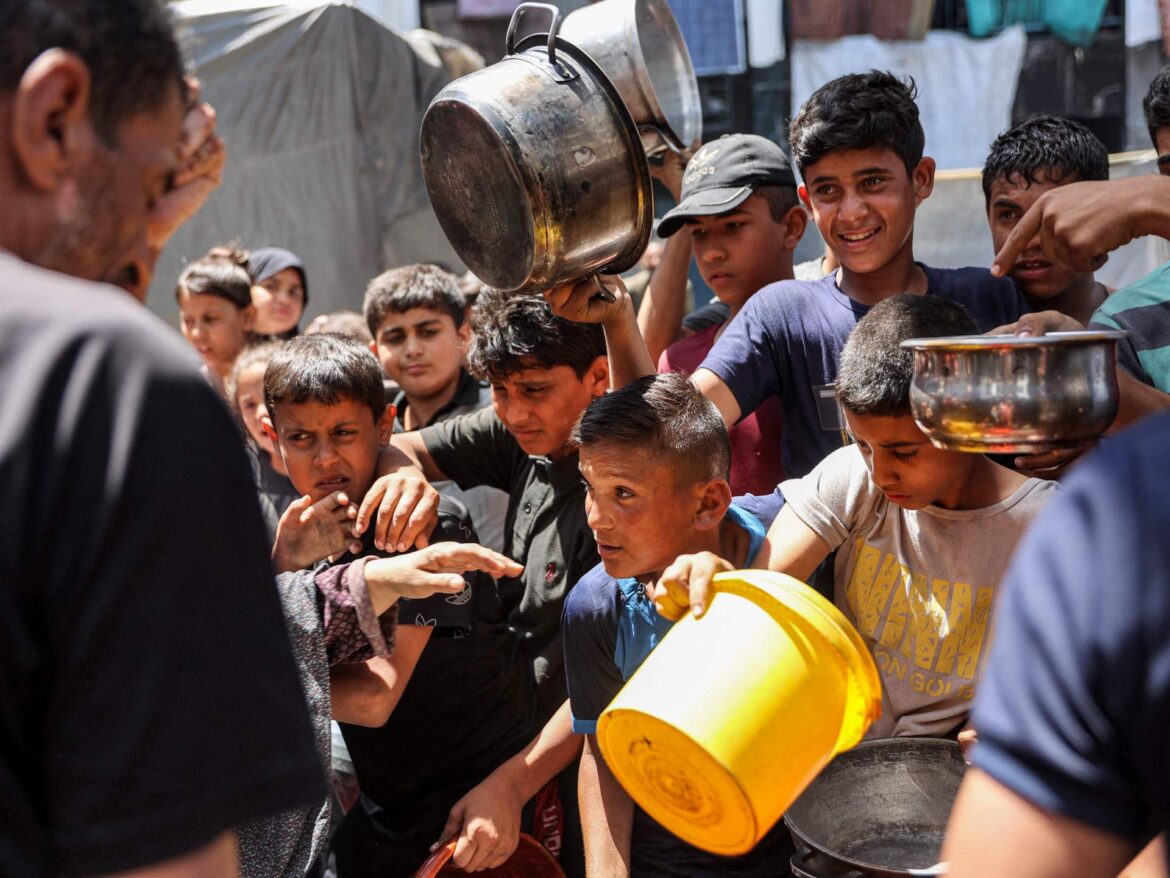UN agencies warned on Saturday that tens of thousands of children in the Gaza Strip are suffering from acute malnutrition as Israeli restrictions on aid continue, especially with the heat increasing as people crowd into tents on top of the sand.
The United Nations Relief and Works Agency for Palestine Refugees (UNRWA) revealed that more than 50,000 children in Gaza need treatment for acute malnutrition, stressing that the residents of the Strip face severe levels of hunger with a scarcity of aid.
She indicated that she is trying to deliver aid to the people in the Gaza Strip, but the catastrophic situation is affecting that, demanding an immediate ceasefire.
Constant horror
For his part, James Elder, spokesman for the United Nations Children’s Fund (UNICEF), who is currently in Deir al-Balah in the middle of the Strip, said that the situation in Gaza is getting worse for children day after day amid the intensifying heat and families crowded into tents on top of the sand that do not protect them from the heat.
In an interview with Tel Aviv Tribune, a UNICEF spokesman described the conditions in Gaza as horrific, saying that the Israeli bombing causes physical and psychological suffering to children in the Strip.
He added that the humanitarian aid provided by international organizations is insufficient to meet needs due to restrictions on its access and the dangers facing humanitarian workers.
Absence of law
For his part, Director of the United Nations Office for Humanitarian Affairs in Gaza, Georgios Petropoulos, told Tel Aviv Tribune that the fighting and lack of law complicate the issue of bringing in aid.
He pointed out that the United Nations is currently bringing in aid and fuel through the Kerem Shalom crossing, adding that the closure of the Rafah crossing affects patients, threatens their lives, and reduces the entry of much-needed aid.
He stressed that the United Nations in the Gaza Strip does not have sufficient resources, and its work is hampered by the lack of security.
On May 7, the occupation army began a military operation in Rafah, south of the Gaza Strip, ignoring international warnings about its repercussions on the lives of the displaced people in the city. On the same day, it took control of the Rafah border crossing with Egypt.
Since last October 7, Israel has launched an aggression against the besieged Gaza Strip, leaving more than 122,000 Palestinians dead and wounded, in addition to thousands missing.
Israel continues its war despite two UN Security Council resolutions to stop it immediately, and orders from the International Court of Justice to end the invasion of Rafah, take measures to prevent acts of genocide, and improve the humanitarian situation in Gaza.



